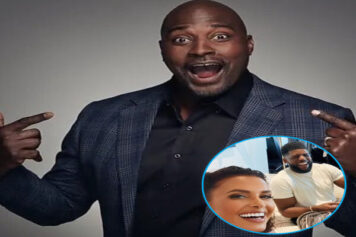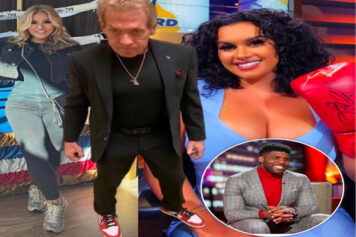Located at the southern tip of Manhattan, the L.E.S. Coleman Skatepark is easy to miss if you’re not paying attention. It’s in the shadow of the Manhattan Bridge, and the howling trains that rush directly over the park periodically masks the clunking sounds of skateboards springing off the concrete. Though the venue is tricky to pinpoint, its diverse racial makeup is simple to notice, boasting an even split between white and black skaters.
Flatbush, Brooklyn-native Genesis Evans said it’s always been like this since he started skating four years ago, perhaps due to the inherent diversity in New York City.
“I just noticed more black people skating than other races,” Evans said. “I’d say it’s really diverse now.”
Once a lifestyle enjoyed exclusively by whites in the California suburbs, skateboarding eventually rolled into the streets, which transformed the culture to a point where Lil Wayne has even opened a skate park in New Orleans . In conjunction with this trend, the Summer X Games is looking to branch out in a similar way.
From 2014 to 2017, the competition will be in Austin, Texas, ending an 11-year tenure in Los Angeles. Skateboarding, arguably the X Games’ most popular attraction, has extremely strong ties to California, which made it easy for the competition to get cozy in the Southland. But — as venue owners Anschutz Entertainment Group admitted — ESPN’s the desire to capitalize on the X Games’ increasing popularity perpetuated the switch.
From the Los Angeles Times:
"Quite frankly, it has gotten very big and they were looking to change the format," said Lee Zeidman, AEG senior vice president of Staples Center and L.A. Live, which will host the vast majority of this year's events. "It made sense for them to leave after this year based on the economics, the growth potential and the fact that they have the opportunity to try something new."
Specifically, the popularity of street skateboarding at the X Games has reached new heights. Street League Skateboarding — a league that has made stops at the X Games in Brazil, Spain, Germany and Los Angeles — has pushed a new, more accessible brand of skateboarding into the mainstream. With this, the X Games is spreading one of the world’s biggest skate showcases to other parts of the United States.
Nyjah Huston, born to a white mother and black father, headlines this new frontier. Huston, 18, won his fourth X Games gold medal on Saturday in Los Angeles, which is tied for the most in event history. He was one of four non-white skaters (two blacks, two Latinos) in a field of eight who competed in the skateboard street finals. Out of the 20 professionals in Street League, however, seven are non-white.
Certainly not a lopsided ratio, but it also doesn’t fully represent how much skateboarding resonates with black people today. Washington D.C. pro skater Darren Harper can explain that trend in vivid detail.
“I can be in my hood now and I’ll see a pack skaters come past,” Harper said. “I remember when I couldn’t even find a skater on the corner … It’s a beautiful thing.”
As a teenager, Harper’s life spiraled into a cycle of drug dealing and other crimes, a lifestyle which plagued his neighborhood in Southeast D.C., endangering his chances of becoming a skateboarder. Ultimately, however, he left the drug game and returned to skating, despite the negative reception it got in the black community at the time.
As a kid, Harper remembers having to hide his board while riding on the Metro to avoid being judged in his hood; now, as he states on his Twitter account, he is the “Obama of Skateboarding.” The title represents what Harper’s abilities and relatable background has done for the D.C. skating scene, which has made remarkable progress in recent years. The combination of his skills and his story has made him an inspiration for black skateboarders from the streets.
The type of impact Harper has had on skateboarding in urban communities is not something that can be achieved just by winning gold medals. In fact, the D.C. skate ambassador has never competed in the X Games, and he’s not interested in vying for an invite, either.
Similar to black skaters Stevie Williams and Kareem Campbell, Harper has been able to leave a mark without X Games fame. Though Huston’s success in competition naturally gives him large influence as a black skateboarder, Harper said going down that route would not optimize the level of change he can potentially make.
“The kids like to see the people in the streets,” Harper said. “I have a story. I have something that will save lives as far as what I came from and how I turned nothing into something via skateboarding when nobody around me was doing it.”
In short, Harper sticks to what he knows. Skaters who participate in competitions and those who choose to solely garner their buzz on the streets have different end goals in mind, but neither way is more true to skateboarding culture than the other. For the most part, the X Games is about showcasing the competition, and that’s how it should be. After all, TV ratings are still important.
“Our campaigns, promotions and content go into urban areas, suburban areas, rural areas, and the range in between,” said Rob Tobias, vice president of communications at ESPN, in an emailed response. “It is not a case of targeting urban as much as it is making sure that we try to bring these sports athletes and content to the broadest audience we can.”
**
Roughly eight blocks from the L.E.S. Coleman Skatepark is Shut Skateboards, one of the most historically rich skate shops in New York City. Established in 1986, the shop was around as skateboarding got introduced to the city streets. Mat Terwilliger, who has worked at Shut for five years and skated the New York City blocks since 1985, noticed an increasing number of black people over the years giving up their hoop dreams and turning to skateboarding.
“Some people just don’t want to be stereotyped,” Terwilliger said. “We’re just people.”
Since the removal of the “white boy” stigma in skateboarding, it has boasted an inclusive culture that goes hand in hand with its inherent freedom. It no longer sports a grimy, punk-rock label like it did before. Rather, hip-hop best encapsulates modern skateboarding. Lil Wayne's Trukfit brand is becoming more popular amongst skaters, and up-and-coming New York rapper Joey Bada$$ is even skateboarding on the cover his acclaimed 1999 mixtape. Despite the similarities between skateboarding and hip-hop, however, repping the music or the artists is not a requisite for those involved in the skating culture. It’s about being different, as it always has been, and the way that is expressed is up to the skaters.
In the end, it helps make skateboarding what it is today. The X Games gave viewers a glimpse of that, but a trip to places like the Coleman Skatepark is needed to see skate’s true colors.
“There’s no black. There’s no white,” Terwilliger said. “It’s just skateboard.”



